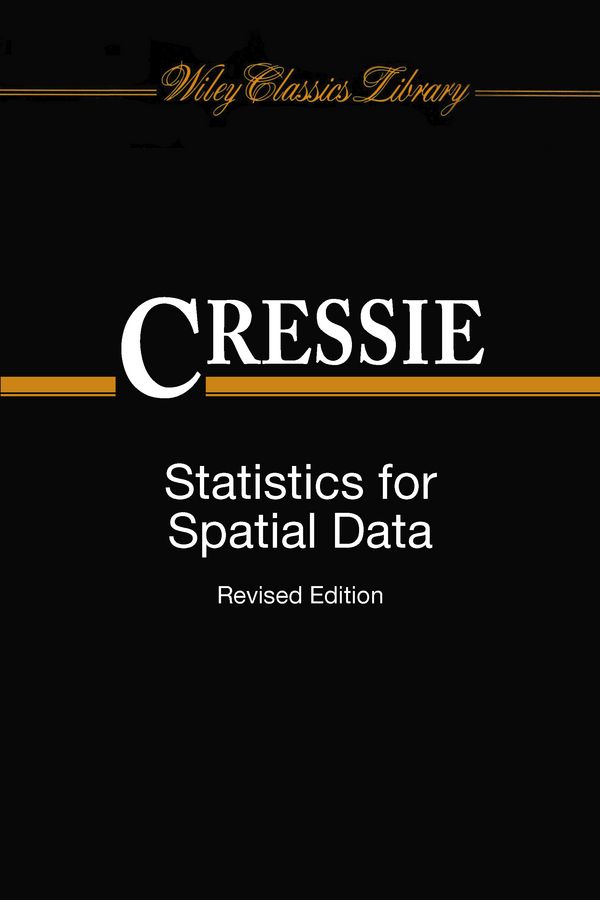<p>The <i>Wiley Classics Library</i> consists of selected books that have been made more accessible to consumers in an effort to increase global appeal and general circulation. With these new unabridged softcover volumes, Wiley hopes to extend the lives of these works by making them available to future generations of statisticians, mathematicians, and scientists.</p> <p>Spatial statistics — analyzing spatial data through statistical models — has proven exceptionally versatile, encompassing problems ranging from the microscopic to the astronomic. However, for the scientist and engineer faced only with scattered and uneven treatments of the subject in the scientific literature, learning how to make practical use of spatial statistics in day-to-day analytical work is very difficult.</p> <p>Designed exclusively for scientists eager to tap into the enormous potential of this analytical tool and upgrade their range of technical skills, Statistics for Spatial Data is a comprehensive, single-source guide to both the theory and applied aspects of spatial statistical methods. The hard-cover edition was hailed by Mathematical Reviews as an “excellent book which will become a basic reference.” This paper-back edition of the 1993 edition, is designed to meet the many technological challenges facing the scientist and engineer. Concentrating on the three areas of geostatistical data, lattice data, and point patterns, the book sheds light on the link between data and model, revealing how design, inference, and diagnostics are an outgrowth of that link. It then explores new methods to reveal just how spatial statistical models can be used to solve important problems in a host of areas in science and engineering.</p> <p>Discussion includes:</p> <ul> <li>Exploratory spatial data analysis</li> <li>Spectral theory for stationary processes</li> <li>Spatial scale</li> <li>Simulation methods for spatial processes</li> <li>Spatial bootstrapping</li> <li>Statistical image analysis and remote sensing</li> <li>Computational aspects of model fitting</li> <li>Application of models to disease mapping</li> </ul> <p>Designed to accommodate the practical needs of the professional, it features a unified and common notation for its subject as well as many detailed examples woven into the text, numerous illustrations (including graphs that illuminate the theory discussed) and over 1,000 references.</p> <p>Fully balancing theory with applications, <i>Statistics for Spatial Data</i>, Revised Edition is an exceptionally clear guide on making optimal use of one of the ascendant analytical tools of the decade, one that has begun to capture the imagination of professionals in biology, earth science, civil, electrical, and agricultural engineering, geography, epidemiology, and ecology.</p>
Statistics for Spatial Data
₹5,905.00
This book is currently not in stock. You are pre-ordering this book.




